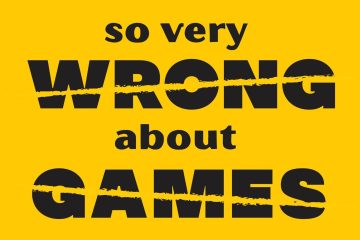Stepping into the world of ESL (English as a Second Language) can be both exciting and challenging. One engaging way to enhance language learning is through the use of board games. These interactive tools not only make learning fun but also provide a unique platform for students to practice their language skills in a playful setting. In this article, we will explore how ESL board games can tell us more than just words by delving into the realm of language acquisition and interactive learning. Let’s roll the dice and uncover the hidden gems of educational gaming!
Table of Contents
- Engaging ESL Board Games to Improve Speaking Skills
- Tips for Using Board Games Effectively in ESL Classes
- Innovative Ways to Incorporate Board Games for Language Practice
- The Best ESL Board Games to Make Learning Fun
- Q&A
- In Retrospect


Engaging ESL Board Games to Improve Speaking Skills
Imagine a world where learning English is not only educational but also incredibly fun! Dive into the realm of ESL board games that are specifically designed to enhance your speaking skills while having a blast with friends or fellow learners. These interactive games offer a unique way to practice pronunciation, vocabulary, and conversational skills in a relaxed and engaging setting.
With a variety of board games tailored for ESL learners, you can embark on a linguistic adventure that will spark conversations, encourage teamwork, and boost confidence in speaking English. From word association challenges to storytelling exercises, these games provide a dynamic platform for practicing fluency and spontaneous speech. By incorporating role-playing scenarios, vocab-building challenges, and dialogue-focused interactions, ESL board games create an immersive experience that makes learning English enjoyable and effective. Embrace the opportunity to step out of your comfort zone, sharpen your language skills, and connect with others through the power of play.
Tips for Using Board Games Effectively in ESL Classes
Using board games in ESL classes can be a fun and effective way to engage students while helping them improve their language skills. Incorporating games into your lessons can provide a refreshing break from traditional teaching methods and create a dynamic learning environment. To make the most out of using board games in ESL classes, consider the following tips:
Encourage Interaction: Board games offer a great opportunity for students to practice their speaking and listening skills in a relaxed setting. Encourage students to communicate with each other in English during the game, whether it’s discussing strategies, asking questions, or giving instructions. This interactive approach can boost their confidence and fluency.
Promote Vocabulary Building: Choose board games that focus on specific language skills or themes related to the lesson objectives. By selecting games that require students to use and understand key vocabulary, you can reinforce learning in a fun and engaging way. Encourage students to explain rules, describe game pieces, or discuss game strategies using the language they are learning.

Innovative Ways to Incorporate Board Games for Language Practice
Playing board games is not only a fun way to pass the time but also a fantastic opportunity to enhance language skills. When it comes to ESL learners, incorporating board games into language practice can make the learning process engaging and effective. Imagine diving into a world of vocabulary, grammar, and communication while rolling the dice and moving game pieces – it’s both educational and entertaining!
One innovative way to utilize board games for language practice is to focus on games that involve storytelling. Games like Dixit, where players interpret abstract illustrations and create stories based on them, can spark creativity and boost vocabulary usage. Another creative approach is to modify traditional board games like Scrabble or Pictionary by adding language-specific rules or challenges, encouraging players to think on their feet and communicate effectively. By immersing in these interactive language-rich environments, ESL learners can improve their speaking, listening, and critical thinking skills while having a blast!

The Best ESL Board Games to Make Learning Fun
Looking to add a sprinkle of excitement to your ESL classroom? Dive into the world of ESL board games, where learning meets fun in an interactive and engaging way. These games are not only educational but also foster teamwork, critical thinking, and language skills development.
<p>With a variety of options available, from word-building challenges to grammar quizzes, ESL board games cater to different learning styles and preferences. Students of all ages can benefit from these games that combine entertainment with educational content, making the learning process enjoyable and memorable.</p>Q&A
Q: What is an ESL board game?
A: An ESL board game is a fun and interactive way to help students learn English as a second language through engaging gameplay and language practice.
Q: How can ESL board games benefit language learning?
A: ESL board games can benefit language learning by making the learning process enjoyable, promoting vocabulary retention, improving communication skills, and fostering a dynamic learning environment.
Q: What are some popular ESL board games to consider?
A: Popular ESL board games to consider include “Tell Us About,” “Word Up,” “English Quest,” and “Language Scrabble,” which offer engaging ways to practice language skills while having fun.
Q: How can teachers incorporate ESL board games into their lessons?
A: Teachers can incorporate ESL board games into their lessons by integrating them as a supplementary activity, using them to reinforce grammar and vocabulary concepts, encouraging peer interaction, and creating a positive learning atmosphere.
Q: Are ESL board games suitable for all ages and language levels?
A: Yes, ESL board games are versatile and can be adapted for different age groups and language levels, making them a valuable resource for students of varying proficiency levels who are looking to improve their English skills.
In Retrospect
As you embark on your journey to enhance language learning through interactive board games, remember that fun and education can go hand in hand. Whether you’re a teacher looking to engage your students or a learner seeking a playful approach to mastering English, ESL board games offer a dynamic and immersive experience. So, roll the dice, draw a card, and let the language adventure begin! Let the power of play guide you towards fluency, one move at a time. Start playing, start learning, and start enjoying the wonderful world of ESL board games today!




0 Comments